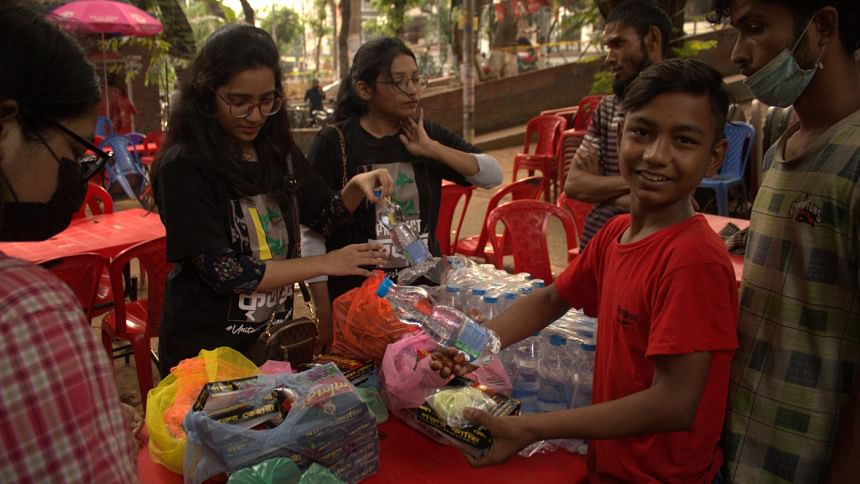Kritoggo Foundation: Passing on the kindness

Ramadan is the time for giving back to society and sharing your blessings with those not as fortunate. The economic landscape of Bangladesh has brought about an unprecedented spike in prices making it increasingly difficult for most to get through life. The Kritoggo Foundation has found an extremely unique way to fit into the context.
Since October 2020, Kritoggo Foundation has been at the forefront of helping the less privileged. The non-profit charity organisation focuses on working for the betterment and development of society through various projects. Through their "10 taka'r bazaar" initiative, they seek to provide people the platform to buy groceries/food for Tk 10 only in a bid to lift off some of the financial burden brought upon them by the current market.
The founder, Syeda Nadira Sumaiya came up with the idea during the start of the COVID pandemic after witnessing first-hand the impact it had on society, particularly in the lower echelon.
"For those who are blessed and privileged, it is their duty to not just be grateful but also give back to those who are not as privileged," she stated. She wanted her foundation to reflect her cause which led to its name "Kritoggo" which is the Bengali word for 'grateful.'
Kritoggo's mission is to create opportunities to break free from the poverty cycle, whilst also maintaining ethical environmental practices. Their vision is to one day create such a society where people can thrive in life and not just survive. They have been addressing issues such as poverty, natural disasters, and climate change by working with individuals and communities affected by them.
Be it providing them with groceries (through Kritoggo Food Bank), fixing houses (through Project Procheshta; a 3-stage plan which elevates a family completely by helping with Food, Shelter and eventually helping set up a business), or building water plants and purifiers (Project Neer) in rural areas, they have left no stones unturned. What started in the form of smaller campaigns is now a full-fledged organisation working towards contributing to the SDG Goals.
Throughout this Ramadan, they have been tirelessly working to provide iftar for the underprivileged throughout Dhaka, Sylhet, and Chattogram.
The "10 taka'r bazaar" is their most recent innovation where beneficiaries can purchase food/grocery items for Tk 10 only. The reason behind this price is to ensure that anyone in dire financial circumstances can step forward to avail of it without belittling themselves.
The concept of donation can have negative implications sometimes and that in turn can get in people's way when it comes to reaching out for help no matter how badly they need it. Besides, all funds raised from the stalls go directly to other initiatives such as iftar distribution. So, people keep the charity chain going while securing meals for themselves.
Kritoggo will even have a special Eid segment of the bazaar set to begin from 15 Ramadan onwards.

 For all latest news, follow The Daily Star's Google News channel.
For all latest news, follow The Daily Star's Google News channel. 





Comments